In thinking back on the films I saw that received a wide commercial distribution in 2022, I noticed how my favorites were all linked by themes of home and family, be it through stories of origins, reunions, departures, legacies, or alternative-family constitutions. This observation was not itself surprising (home and family are among the most common themes in narrative cinema), but what interested me was how the films paired according to such markedly different treatments of these themes. Rather than mounting any theory as to what that “reflects” about “where we are” at the beginning of the new year, a proposition that at this point can only be speculative and risks confusing causation with correlation, the following reflects on what I admired about the films themselves.
Reordering the Court: Glass Onion (dir. Rian Johnson) and The Tragedy of Macbeth (dir. Joel Coen)

Writer-director-producer Rian Johnson’s follow-up to his 2019 hit Knives Out finds private investigator Benoit Blanc (Daniel Craig) in a brand-new murder mystery as he joins a motley crew of party guests at their friend’s mansion on his private island in Greece. Although not as fresh as Knives Out (it’s a little too self-conscious of its topicality and in-jokey cleverness), Glass Onion is a worthy successor, weaving twists within twists only to unravel them with eminently gratifying panache. Chief among the film’s pleasures is the ensemble cast Johnson assembles, including Edward Norton, Janelle Monáe, and Kathryn Hahn, but it’s Craig who walks away with the show. As Detective Blanc, he brings another inspired performance that exposes what’s currently lacking in the Hollywood franchise machine. I mean, just look at him in his ascot and seersucker swimsuit, wading in the pool. Vivre le cinéma!
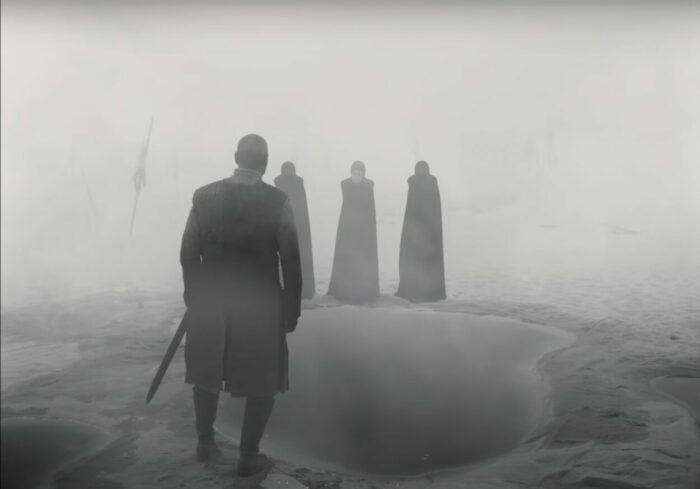
Then there’s Joel Coen’s noiresque take on The Tragedy of Macbeth, proving—as if there was any doubt—that there’s no family drama like Shakespearean family drama, or, for that matter, film noir. Shot in the square “academy ratio” of 1.37:1 with exquisitely low-key black-and-white cinematography, the film is a royal marriage between the theatricality of Shakespeare and the rigorous cinematic formalism we have come to expect from Coen (Macbeth was the first feature on which Joel did not collaborate with his brother Ethan). With a cast led by Denzel Washington and Frances McDormand, it offers the experience of rediscovering the excitement in a text that will be very familiar to products of the North American and British secondary-education systems. No film has made the murder and intrigue that entangle the houses of Macbeth, Macduff, and Duncan quite so thrilling, and Kathryn Hunter gives the performance of the year as the three witches.
You can stream Glass Onion on Netflix and The Tragedy of Macbeth on Apple TV.
Facing Your Demons: God’s Creatures (dir. Saela Davis & Anna Rose Holmer) and You Won’t Be Alone (dir. Goran Stolevsky)
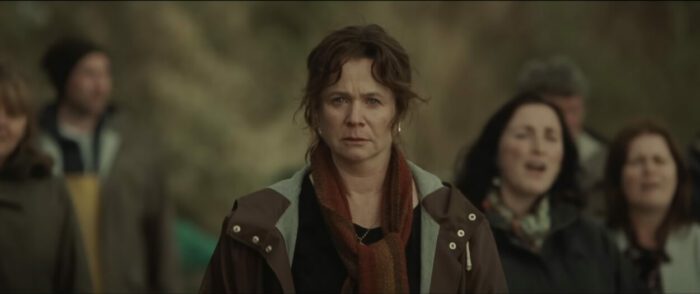
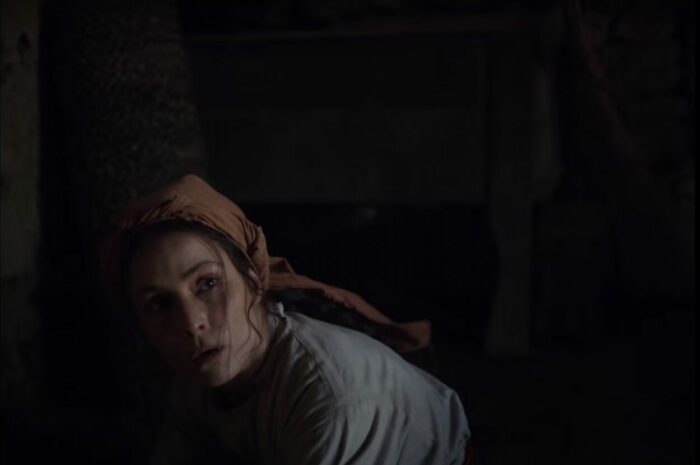
Two of the year’s most unsettling films are about the monsters that families make, one figurative and one literal. Set in a small Irish fishing village, God’s Creatures stars Emily Watson as a mother who idealizes her recently repatriated son (Paul Mescal) and lies on his behalf when charges are brought against him that she cannot accept. In You Won’t Be Alone, a grisly fairy-tale not for the faint of heart, a young woman raised by a witch in nineteenth-century Macedonia leaves home and uses her shapeshifting abilities to live among the mortals. Whereas God’s Creatures turns a naturalistic, everyday environment into a space of Gothic horror, You Won’t Be Alone grounds the supernatural in a stark reality. Both films build slowly to a cumulative impact that is difficult to shake. I wouldn’t dare spoil the surprises.
God’s Creatures and You Won’t Be Alone are available for rental and purchase on demand.
Nostalgia as Homesickness: The Automat (dir. Lisa Hurwitz) and The Fabelmans (dir. Steven Spielberg)
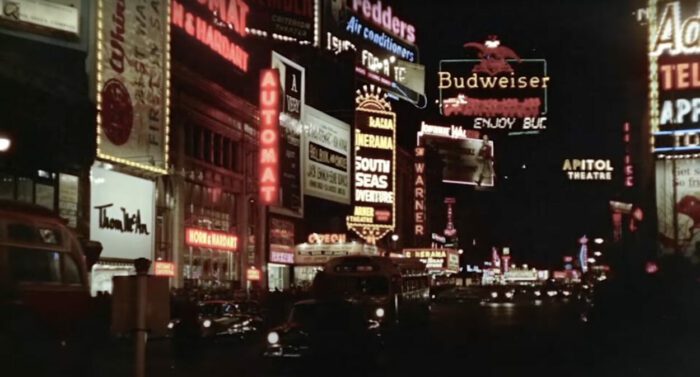
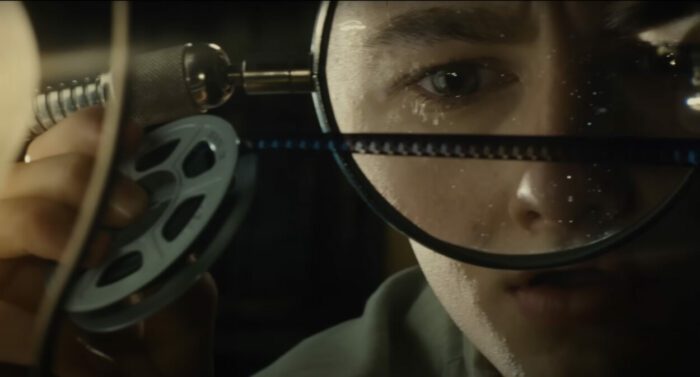
Lisa Hurwitz’s The Automat, a directorial debut and self-distributed film, and Steven Spielberg’s The Fabelmans, a late-career film from an established Hollywood auteur, represent another pair of complementary opposites. Hurwitz is a young filmmaker who funded her project with a Kickstarter campaign, and who seems to possess the maturity and life experience of someone several generations older. Spielberg is synonymous with big-budget Hollywood blockbusters and, at the age of seventy-six, seems to work with the intuition, awe-struck enthusiasm, and playful imagination of youth. The Automat is an eighty-minute documentary that relies on historical research. The Fabelmans is a two-and-a-half-hour narrative feature inspired by Spielberg’s personal life. Yet, both films focus on subjects that are generative sources of memory and each filmmaker approaches them with deep affection, as well as a culturally and geographically specific sense of time and place.
For Hurwitz, it’s the Horn & Hardart restaurant chain in Philadelphia and New York City, where the first food-service vending machines in the U.S. operated (in addition to surviving members of the Horn & Hardart families and former employees of the company, the talking heads range from Mel Brooks and Carl Reiner to Colin Powell and Ruth Bader Ginsburg!). For Spielberg, it’s Phoenix, Arizona and Saratoga, California, where from the late-1950s to the mid-1960s, his love for filmmaking emerged alongside—and sometimes in relation to—his gradual awareness of his parents’ impending divorce. Hurwitz reconstructs the history of Horn & Hardart to analyze the social dynamics of class, race, ethnicity, gender, and urban development in the U.S. during the middle of the twentieth century. Spielberg recalls his childhood and adolescence to examine his outsized auteurist mythos. In both cases, we see two nuanced, intelligent filmmakers reckoning with what no longer exists (the last Horn & Hardart restaurant closed in 1991) and what never existed in the first place (the parental ideal that eclipses human beings).
The Automat is available on DVD, and for rental and purchase on demand. You can stream it on HBO Max and Kanopy. The Fabelmans is playing in theaters and available for purchase on demand.
Real Boys: Pinocchio (dir. Guillermo del Toro) and After Yang (dir. Kogonada)
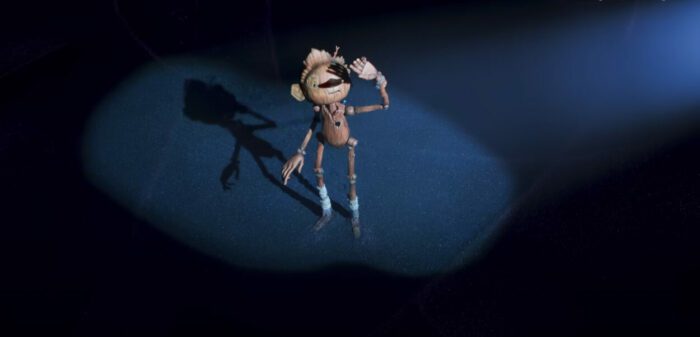
“It’s a story you may think you know,” says Pinocchio’s narrator Sebastian J. Cricket (Ewan McGregor), “but you don’t.” Those expecting a re-make of Disney’s 1940 cel-animation classic might take this introduction as a word of warning (or reassurance, depending on the audience), especially on the heels of Disney’s own live-action remake released last September. Indeed, the source of Guillermo del Toro’s stop-motion animated feature is the nineteenth-century children’s novel The Adventures of Pinocchio by Italian author Carlo Collodi, and Del Toro makes the story his own by updating it to fascist Italy. The animation—as stunning as anything I’ve ever seen—was modeled not after the Disney film, but Gris Grimly’s macabre artwork in his illustrated edition of the Collodi novel published by Tor Books in 2002 under the title Pinocchio.
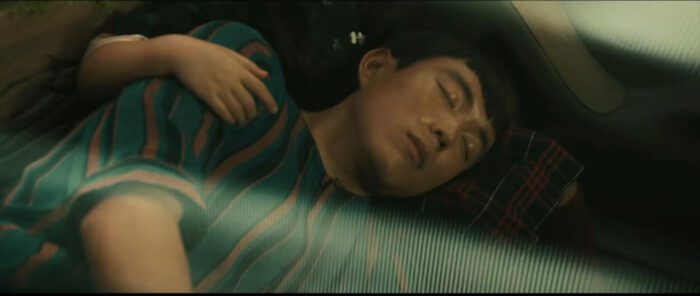
Mr. Cricket’s opening remarks also speak to the adaptive potential that lies in this often-told story of the wooden boy who runs away from home after he is magically brought to life, and the carpenter who goes searching for the surrogate son he has made and now lost. Although not a direct adaptation of Pinocchio, the bittersweet sci-fi drama After Yang revisits some of the same themes with a similar story but brings new elements into focus while revising others. Colin Farrell plays Jake, a father who tries to save the malfunctioning android Yang (Justin H. Min) that he purchased for his adopted Chinese daughter (Malea Emma Tjandrawidjaja) to have as a brother. When Jake gains access to Yang’s memory bank, he begins repairing his strained relationship with his daughter and wife (Jodie Turner-Smith), as he also starts to question Yang’s status as an artificially intelligent machine. The South Korean-born, pseudonymous writer-director Kogonada has said, “The AI story I think about the most is Pinocchio, because we always parse it as if they [AIs] want to be human.” After Yang asks, “what if being a ‘real boy’ for Pinocchio meant something other than being human?”
You can stream Pinocchio on Netflix and After Yang on Showtime. After Yang is also available on Blu-ray and DVD, and for rental and purchase on demand.
Motherhood Renewed and Redefined: Parallel Mothers (dir. Pedro Almodóvar) and Petite Maman (dir. Céline Sciamma)
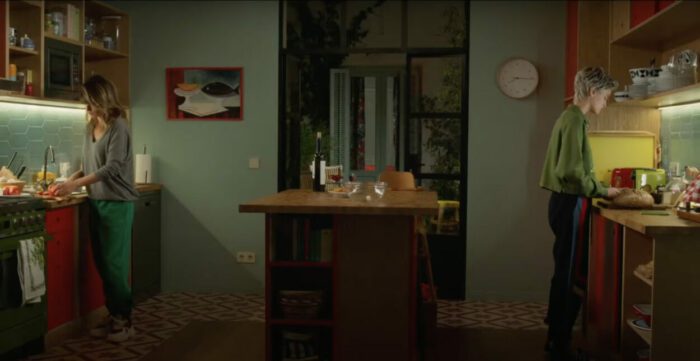
I can think of no filmmaker who has been as invested in the genre of family melodrama—and in rethinking what “family” means and what film melodrama can do—than Pedro Almodóvar. Parallel Mothers belongs on the same shelf as All About My Mother (1999), Volver (2006), Broken Embraces (2009), and Julieta (2016), which, to my mind, are also his best films. Perhaps not coincidentally, Penélope Cruz stars in all but one of these films (Julieta), and in Parallel Mothers, she confirms her longstanding work with Almodóvar as the preeminent star/director collaboration of the twenty-first century—to the degree that we might do well by considering them co-authors of this oeuvre. Cruz earned an Academy Award nomination last year for Best Actress, playing one of the single mothers to which the title refers. The other mother is a younger woman played by Milena Smit. Both of them meet in the Madrid hospital where they give birth, and their lives continue to intersect through the sorts of coincidences, revelations, and narrative labyrinths that only Almodóvar can get us to buy (and we buy it wholeheartedly).
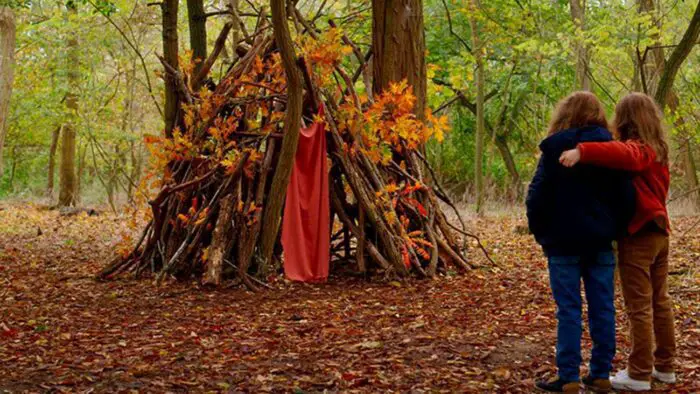
For a moving double feature, you could do no better than following Parallel Mothers with my favorite film of 2022, Petite Maman. If this French fantasy is the most modest film I have mentioned, it also demonstrates the greatest emotional sensitivity. Real-life twins Joséphine and Gabrielle Sanz play eight-year-old lookalikes Nelly and Marion, respectively. After the death of her maternal grandmother, Nelly’s parents bring her to her grandmother’s home, where they plan to clean out her belongings. While playing outside, Nelly meets Marion, apparently the child of one of her grandmother’s neighbors, but as they become friends, Marion seems to be Nelly’s mother as a child. Writer-director Céline Sciamma offers no explanation to account for this impossible meeting (there’s no time travel or multiverse-hopping here). Rather, she evokes the fantastic through poignant suggestion. Petite Maman is a small film, but never slight. It has the wisdom of the ages and the transportive power of a daydream.
Parallel Mothers is available on Blu-ray and DVD, and for rental and purchase on demand. Petite Maman is available for rental and purchase on demand, and you can stream it on HULU.



